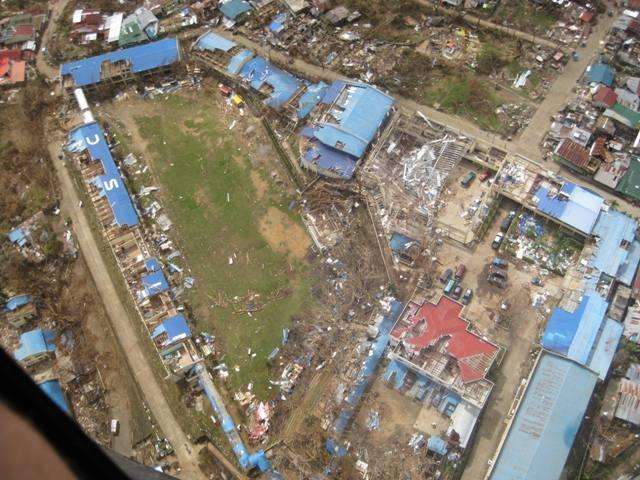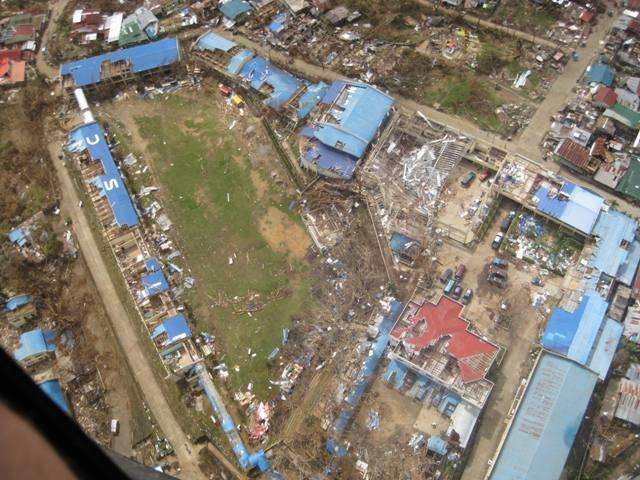Esther Sterk is a medical doctor who arrived in the Philippines earlier this week to assist in the Doctors Without Borders/Médecins Sans Frontières (MSF) response to Typhoon Haiyan. She is working with a team assessing the immediate needs in some of the islands west of Cebu, remote areas that have been massively affected by the typhoon. Here she describes the first days of MSF’s work and her initial impressions of the situation.
“Tacloban City has been the major focus of the aid effort, but the damage in other places is also huge. Yesterday, we managed to assess some areas in Panay, Negros, and Bantayan Islands.
The eastern part of Panay Island has been heavily affected. In some villages, 80 percent of the houses have been partially or completely destroyed. A lot of roofs and walls have fallen or been torn apart. In many cases, the whole house has completely collapsed. In the next days, we will focus on the isolated villages along the coast and on the surrounding islands. At the moment we do not know if health care is accessible and functioning there, but medical facilities are likely to be destroyed."
People Are in Need of Everything
"People tell us that they need drinking water, because the lakes became salty when the sea water surged. In the rural areas, many people have no means of subsistence, as their crops have been destroyed. Usually, those living on small islands travel from one island to another by boat, but many boats have been ruined. Sick people have no way of reaching the main island. On bigger islands, communities are working to clear the roads that are covered with falling trees."
Preparing for a Second Wave of Patients
"The hospital that we visited in Roxas City, in the northern part of Panay, has been damaged but is still functioning. Local medical staff have done what they can to cope with the first wave of patients who suffered from fractures and wounds due to falling objects.
"But it has been raining a lot and survivors have no shelter. We are now preparing for a second wave of patients. They are already seeing cases of respiratory infections and diarrhea, and we expect the number of cases to increase. MSF will focus on supporting the medical facilities with staff, drugs, and medical equipment. We also plan to carry out mobile clinics to remote villages and small islands. We need to be fast—with the floods, there are a lot of mosquitoes. We are worried about an increase in malaria and dengue cases. Leptospirosis, a parasitic disease, is also a threat, as it is endemic in this part of the Philippines."
Providing Aid to the Most Isolated
"We are focused on providing aid fast to the most isolated areas. As of tomorrow, we will be working with staff from the Ministry of Health. Two teams will go back to the eastern coast of Panay by helicopter and by boat. They will take medication with them and will identify the areas for the mobile clinics, in order to go as close as possible to the people in need.”





